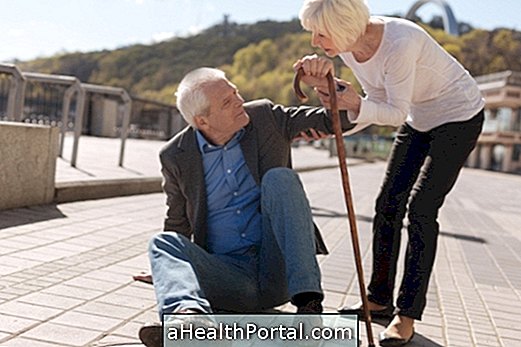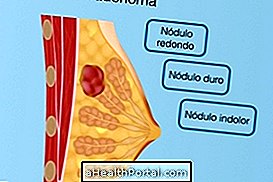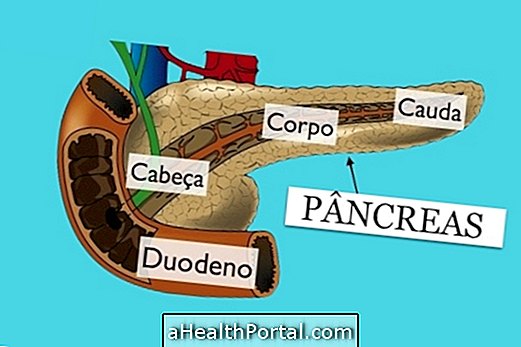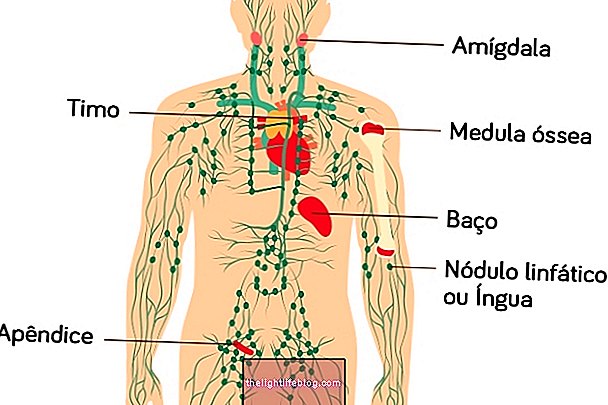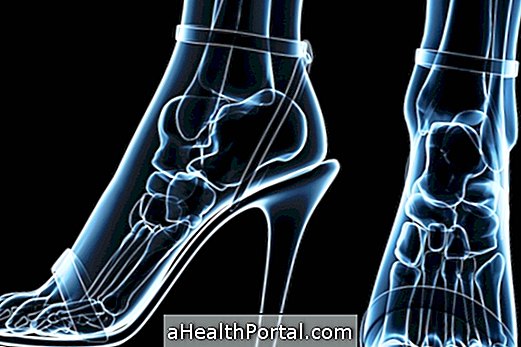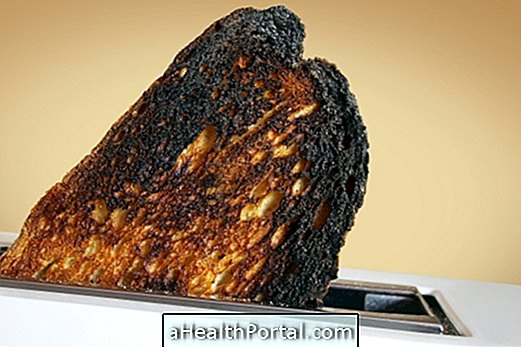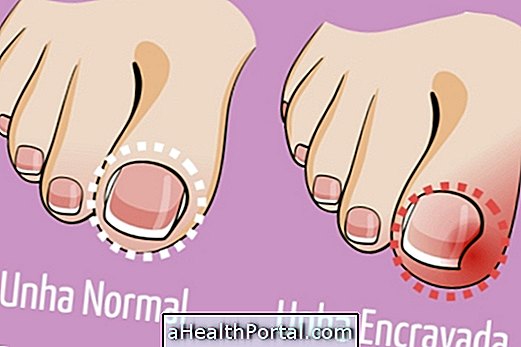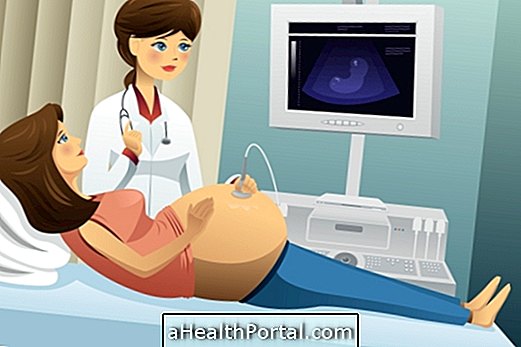The test to identify Alzheimer's risk was developed by the American neurologist James E Galvin and by the New York University Langone Medical Center [1] and aims to evaluate some factors such as memory, orientation, as well as changes in mood and language from answer to 10 questions. The test can be done by the person himself or by a family member, when Alzheimer's is suspected.
Despite not providing enough data to close the diagnosis of Alzheimer's, this questionnaire can indicate that the person needs to go to the doctor because there is a suspicion that the disease is developing. However, only the doctor, based on exams, will be able to diagnose and indicate the treatment of Alzheimer's.
Take the following test to identify your Alzheimer's risk:
- 1
- 2
- 3
- 4
- 5
- 6
- 7
- 8
- 9
- 10
Rapid Alzheimer's test. Take the test or find out what your risk of having this disease is.
Start the test

Is your memory good?
- I have a good memory, although there are small forgetfulnesses that do not interfere with my daily life.
- Sometimes I forget things like the question they asked me, I forget commitments and where I left the keys.
- I usually forget what I went to do in the kitchen, in the living room, or in the bedroom and also what I was doing.
- I can't remember simple and recent information like the name of someone I just met, even if I try hard.
- It is impossible to remember where I am and who are the people around me.
Do you know what day it is?
- I am usually able to recognize people, places and know what day it is.
- I don't remember very well what day it is today and I have a slight difficulty saving dates.
- I am not sure what month it is, but I am able to recognize familiar places, but I am a little confused in new places and I can get lost.
- I don't remember exactly who my family members are, where I live and I don't remember anything from my past.
- All I know is my name, but sometimes I remember the names of my children, grandchildren or other relatives
Are you still able to make decisions?
- I am fully capable of solving everyday problems and deal well with personal and financial issues.
- I have some difficulty understanding some abstract concepts like why a person can be sad, for example.
- I'm feeling a little insecure and I'm afraid to make decisions and that's why I prefer others to decide for me.
- I don't feel able to solve any problem and the only decision I make is what I want to eat.
- I am not able to make any decisions and I am totally dependent on the help of others.
Do you still have an active life outside the home?
- Yes, I can work normally, I shop, I am involved with the community, the church and other social groups.
- Yes, but I am starting to have some difficulty driving but I still feel safe and I know how to handle emergency or unplanned situations.
- Yes, but I am unable to be alone in important situations and I need someone to accompany me on social commitments to be able to appear as a "normal" person to others.
- No, I don't leave the house alone because I don't have the capacity and I always need help.
- No, I am unable to leave the house alone and I am too sick to do so.
How are your skills at home?
- Great. I still have chores around the house, I have hobbies and personal interests.
- I no longer feel like doing anything at home, but if they insist, I can try to do something.
- I completely abandoned my activities, as well as more complex hobbies and interests.
- All I know is to shower alone, get dressed and watch TV, and I am not able to do any other chores around the house.
- I am not able to do anything on my own and I need help with everything.
How is your personal hygiene?
- I am fully capable of taking care of myself, dressing, washing, showering and using the bathroom.
- I am starting to have some difficulty taking care of my own personal hygiene.
- I need others to remind me that I have to go to the bathroom, but I can handle my needs on my own.
- I need help getting dressed and cleaning myself and sometimes I pee on my clothes.
- I can't do anything on my own and I need someone else to take care of my personal hygiene.
Is your behavior changing?
- I have normal social behavior and there are no changes in my personality.
- I have small changes in my behavior, personality and emotional control.
- My personality is changing little by little, before I was very friendly and now I am a bit grumpy.
- They say that I have changed a lot and I am no longer the same person and I am already avoided by my old friends, neighbors and distant relatives.
- My behavior changed a lot and I became a difficult and unpleasant person.
Can you communicate well?
- I have no difficulty in speaking or writing.
- I'm starting to have a hard time finding the right words and it takes me longer to complete my reasoning.
- It is increasingly difficult to find the right words and I have been having difficulty naming objects and I notice that I have less vocabulary.
- It is very difficult to communicate, I have difficulty with words, to understand what they say to me and I do not know how to read or write.
- I just can't communicate, I say almost nothing, I don't write and I don't really understand what they say to me.
How's your mood?
- Normal, I don't notice any change in my mood, interest or motivation.
- Sometimes I get sad, nervous, anxious or depressed, but without major worries in life.
- I get sad, nervous or anxious every day and this has become more and more frequent.
- Every day I feel sad, nervous, anxious or depressed and I have no interest or motivation to carry out any task.
- Sadness, depression, anxiety and nervousness are my daily companions and I totally lost my interest in things and I am no longer motivated for anything.
Can you concentrate and pay attention?
- I have perfect attention, good concentration and great interaction with everything around me.
- I'm starting to have a hard time paying attention to something and I get drowsy during the day.
- I have some difficulty in attention and little concentration, so I can keep staring at a point or with my eyes closed for some time, even without sleeping.
- I spend a good part of the day sleeping, I don't pay attention to anything and when I talk, I say things that are illogical or that have nothing to do with the topic of conversation.
- I can't pay attention to anything and I am completely unfocused.
Who is most at risk of developing Alzheimer's
Although Alzheimer's is usually identified from the age of 60, the disease can begin to manifest some symptoms in younger people, because the disease is more likely to happen in people who have a family history of Alzheimer's, and the disease becomes known as Early Alzheimer's. Learn how to identify the signs and symptoms of early Alzheimer's.
In addition to being more frequent in people who have family members diagnosed with the disease, due to the genetic factor, the risk of developing Alzheimer's is also greater in people who habitually smoke, in people who have unhealthy diets, do not practice physical activity, who were exposed to heavy metals due to professional activity, or who suffered some brain injury. This is because these situations can promote changes in the activity of the nervous system over time, favoring the development of Alzheimer's. See more about the causes of Alzheimer's.
How the diagnosis is made
The diagnosis of Alzheimer's is made, in most cases, by the neurologist through the performance of several behavioral tests that allow the assessment of the activity of the nervous system, in addition to taking into account the Alzheimer's risk test and the assessment of signs and symptoms presented by the person over time.
In addition, the doctor can indicate the performance of some blood tests, to make the differential diagnosis of other diseases, and imaging tests, such as magnetic resonance imaging of the brain, for example.
In addition, in some cases the doctor may also request a cerebrospinal fluid analysis to check the levels of beta-amyloid and Tau proteins, which are normally in greater amounts in the case of Alzheimer's. However, this exam is not routinely requested and is not always available for testing.
Learn more about this disease, how to prevent it and how to care for the person with Alzheimer's by watching the following video:

Was this information helpful?
Yes No
Your opinion is important! Write here how we can improve our text:
Any questions? Click here to be answered.
Email in which you want to receive a reply:
Check the confirmation email we sent you.
Your name:
Reason for visit:
--- Choose your reason --- DiseaseLive betterHelp another personGain knowledge
Are you a health professional?
NoMedicalPharmaceuticalsNurseNutritionistBiomedicalPhysiotherapistBeauticianOther
Bibliography
- GALVIN, JAMES E. The Quick Dementia Rating System (QDRS). Available in: . Accessed on 04 Aug 2020


